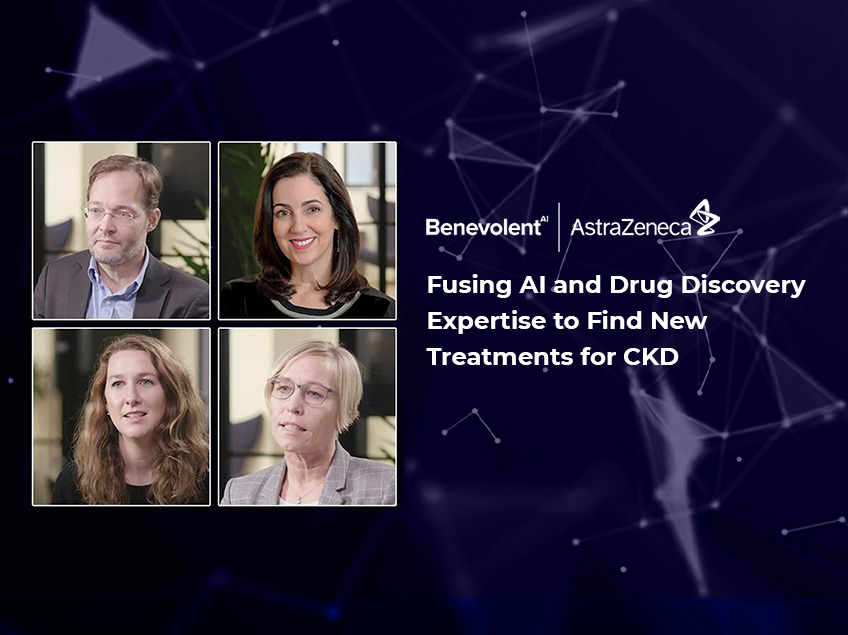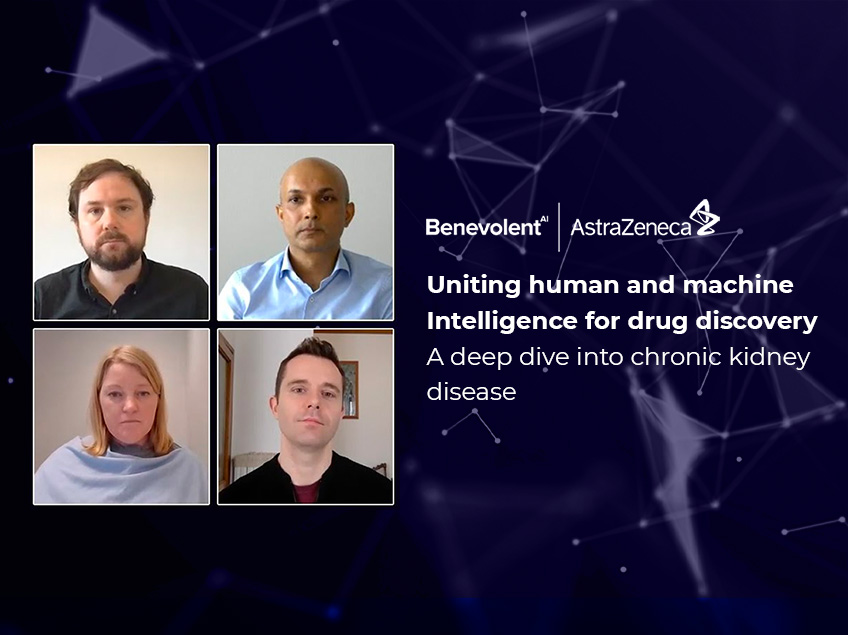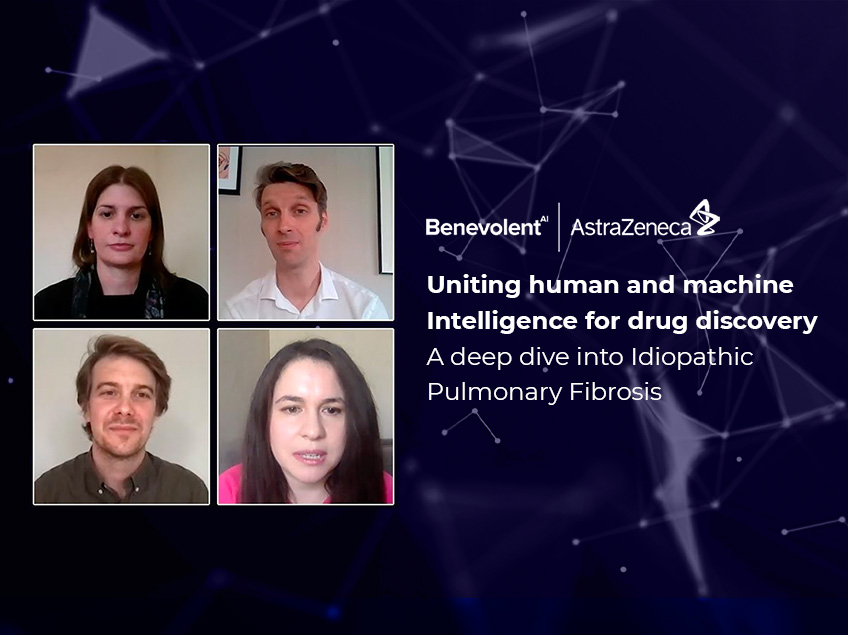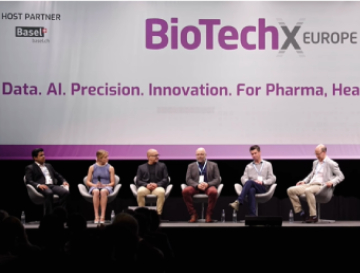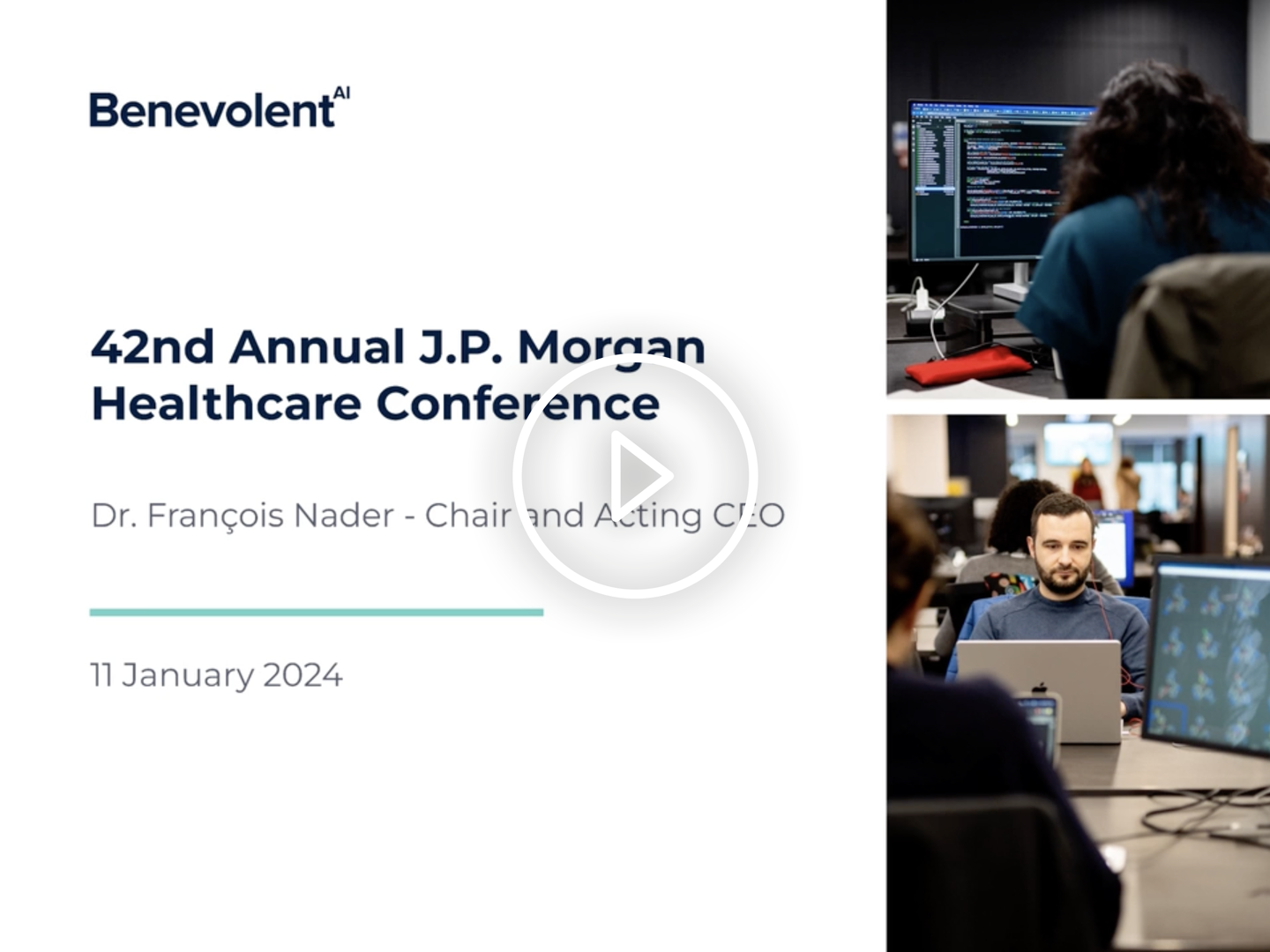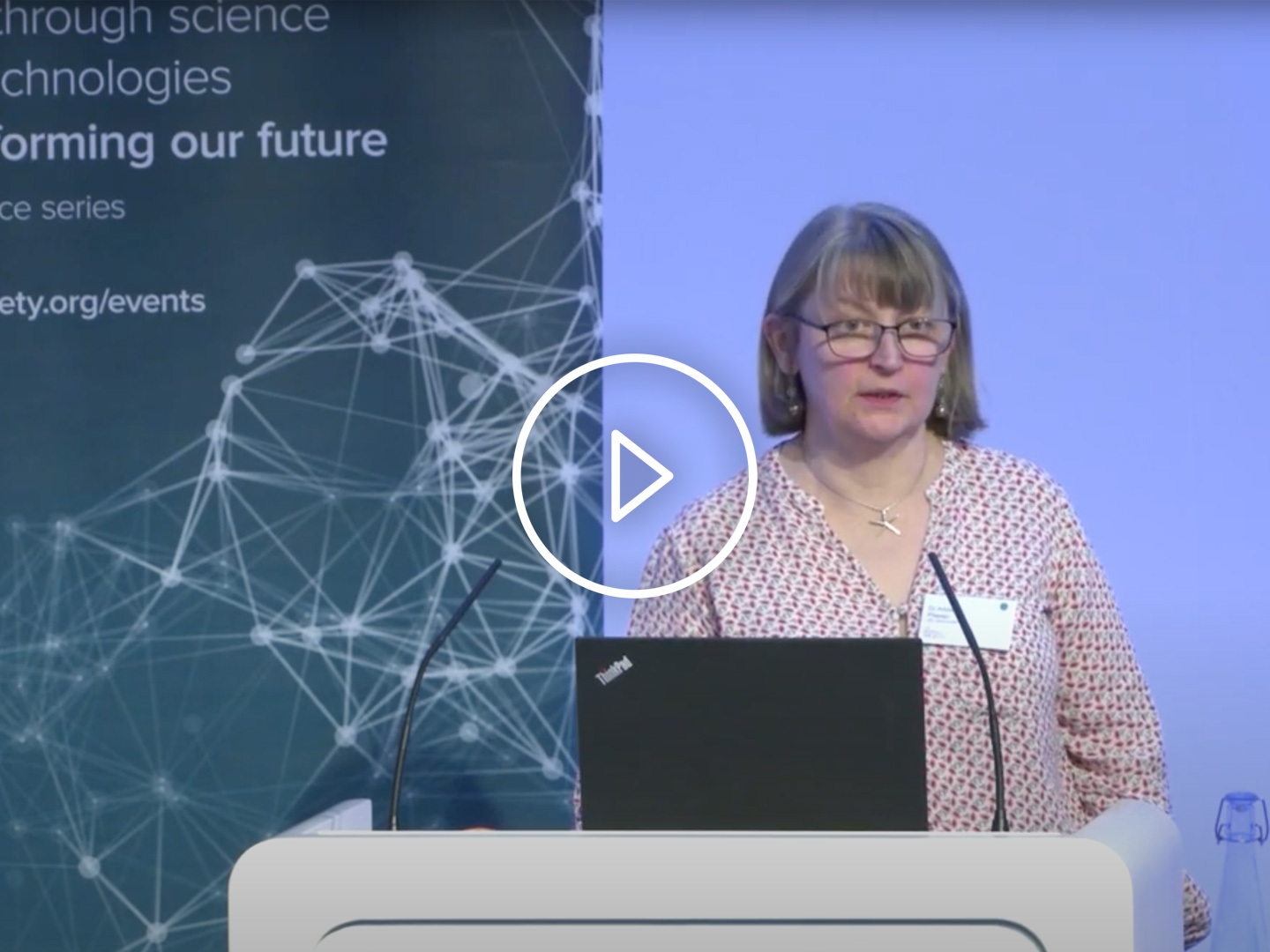Lead Product Manager
Finding the right target underpins the success of the entire drug discovery process. Learn how BenevolentAI’s collaboration with AstraZeneca is making a difference in CKD and IPF.
Determining the right target underpins the success of the entire drug discovery process: a molecule will never become a medicine if it modulates the wrong target. Many challenges have traditionally hampered the search for the right target, such as the complexity of disease pathophysiology and the difficulty of integrating and reasoning from the vast amount of available biomedical information surrounding diseases. Artificial intelligence (AI) and machine learning (ML) are helping to transcend these hurdles, and in doing so, are transforming the way target discovery is approached.
BenevolentAI and AstraZeneca’s collaboration is at the forefront of this new frontier, leveraging AI and ML to identify novel targets for highly complex, multifactorial diseases. Our work together has already yielded a validated AI-generated target for chronic kidney disease (CKD) to the AstraZeneca portfolio and a robust list of potential targets for idiopathic pulmonary fibrosis (IPF). Our approach aims to help AstraZeneca address one of their biggest challenges by converting ‘big data’ into valuable knowledge, in order to get more efficacious medicines to the right patients at an unprecedented pace.
Leaders from BenevolentAI and AstraZeneca discuss progress in the collaboration so far.
Using AI and ML, we can build – and interpret – huge datasets that capture the whole picture of disease biology and allow scientists to more accurately find the right mechanisms to target, in the right patient population. We started by integrating data from a mixture of unstructured and structured data into the BenevolentAI Knowledge Graph. Whereas scientists usually analyse data in silos, this holistic approach reasons through many data modalities, giving a full and unbiased overview of disparate datasets in order to draw connections that may not be obvious from any single source. Benevolent’s AI and ML models sit on top of the knowledge graph to find previously unexplored patterns and uncover a new understanding of disease biology. Ultimately, this data-driven approach helps identify higher-quality novel drug targets that siloed data sets and experts may not have otherwise found.
Usually, new data and knowledge pose a challenge to the limitations of human reasoning; in this approach, we feed new data and knowledge back into the graph, meaning every newly designed experiment will benefit from everything learned before.
Experts from the collaboration team explore how AI-enabled target identification is advancing chronic kidney disease medicine discovery.
BenevolentAI creates its tools and models to meaningfully augment scientific expertise and bridge the gap between machine and human in order to reduce bias, identify novel connections and inform and enhance decision making. Using ML-based target triage tools, drug discoverers can contextualise the target predictions by harmonising and surfacing the most relevant data to help them make better informed and data-driven decisions over which targets to prioritise.
The cross-functional collaboration team discusses how AI is helping them to explore and find new targets for idiopathic pulmonary fibrosis.
Another challenge in target drug discovery is inter-patient variability: not all patients share the same underlying pathophysiology. Precision medicine approaches can help to identify patient subgroups, or endotypes, who share underlying pathophysiology and could respond similarly to a particular treatment. By more accurately selecting the right patient population for the right target, we multiply the likelihood that a drug will succeed in clinical trials.
BenevolentAI and AstraZeneca’s collaboration has demonstrated the power of bringing a team from various scientific and technical backgrounds together to solve a common problem. Our work has also further demonstrated the utility of using AI and ML to advance the understanding of disease. Moreover, the momentum is building; the first AI-generated novel CKD target being selected for AstraZeneca’s pipeline shows AI is delivering on its promise to identify higher quality targets, faster. Together we share an important responsibility through our collaboration and a common purpose - to pool our expertise so that more people can live longer, happier and healthier lives.
Authors
Siobhan McMahon
Lead Product Manager, BenevolentAI
Mike Snowden
Senior Vice President, Discovery Sciences AZ, AstraZeneca
Back to blog post and videos


